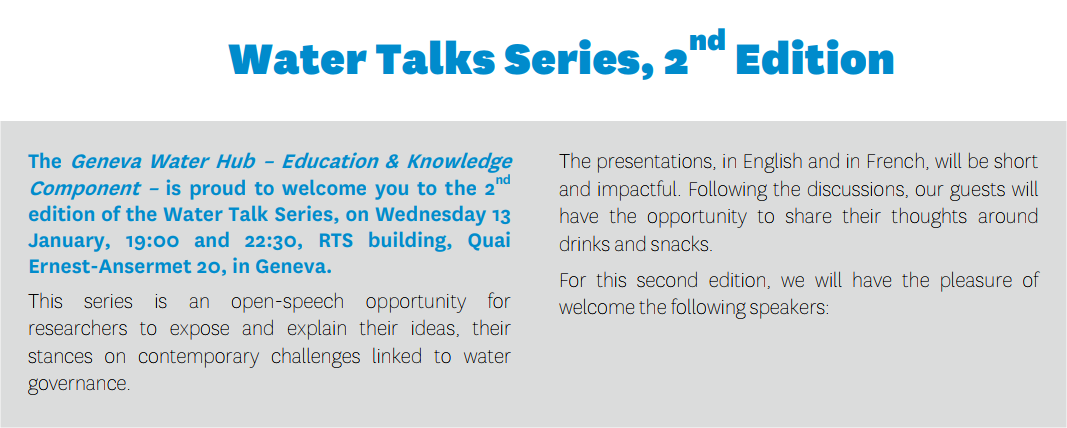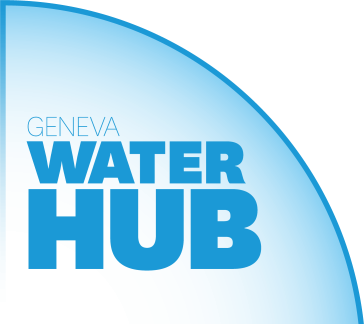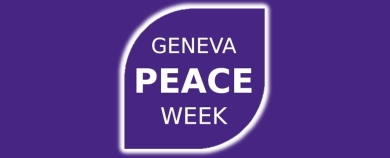
Water Talks Series n°2 - Prof. Frances Cleaver


The Geneva Water Hub – Education & Knowledge component – is proud to present the 2ndedition of the "Water Talk Series". This series is an open-speech opportunity for researchers to expose and explain their ideas, their stances on contemporary challenges linked to water governance. The presentations, are in English or in French, short and impactful.
Frances Cleaver is Professor of Human Geography at the University of Sheffield, UK, and her research interests focus on understanding the everyday ways that institutions work to shape the processes and outcomes of water governance, particularly at the local level. She has been developing the idea of institutional bricolage to explain why many local institutions (like waterpoint committees or water user associations) are hybrid arrangements which incorporate elements of tradition, practical norms and power relationships, as well as elements derived from bureaucratic models and state driven development. Working from an inter-disciplinary base in international development studies she is interested in how improved understandings of these issues can inform interventions for progressive social change. Currently leading the social science elements of a multi-partner consortium project ‘Hidden Crisis: unraveling current failures for future success in rural groundwater supply’ which is being implemented with WaterAid and other partners.
Adaptive Water Governance: the Promises and Pitfalls of Institutional Bricolage
Dans cette présentation, le professeur Cleaver explore l'idée que les institutions de gouvernance locale de l'eau sont davantage façonnées par des processus de bricolage (l'assemblage d'arrangements à partir des matériaux disponibles) que par la conception. S'appuyant sur des exemples de Tanzanie et du Zimbabwe, elle montre que les institutions formées par le bricolage sont dynamiques, adaptables et qu'elles correspondent au contexte local. Cependant, elles peuvent aussi être inefficaces, inéquitables et intermittentes. Enfin, elle discute des dilemmes que cela pose aux agences de développement et à leurs interventions planifiées.




